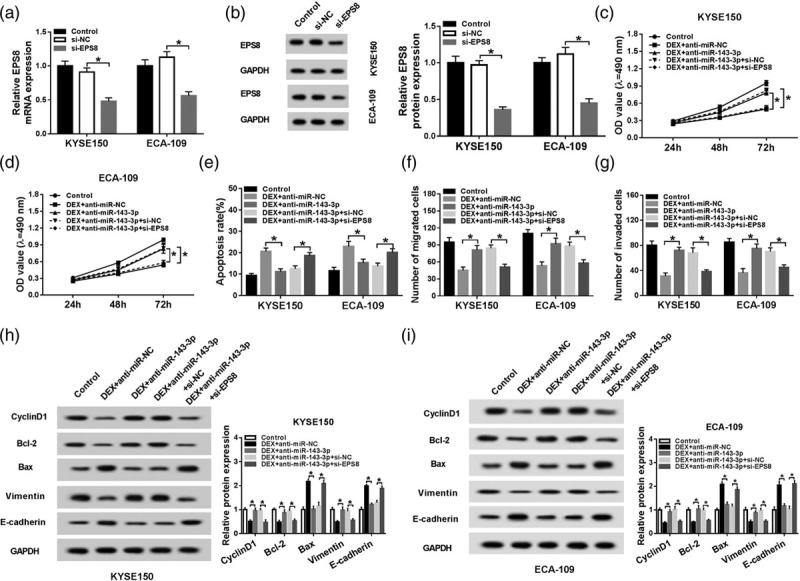Fig. 5.

The interference of EPS8 attenuates the promoting effects of miR-143-3p inhibition on the proliferation and metastasis of esophageal cancer cells and the inhibitory impact on the apoptosis of esophageal cancer cells treated with DEX. (a and b) The enrichment of EPS8 mRNA and protein was examined in esophageal cancer cells transfected with control, si-negative control or si-EPS8 by qRT-PCR and Western blot. KYSE150 and ECA-109 cells treated with control, DEX + anti-miR-negative control, DEX + anti-miR-143-3p, DEX + anti-miR-143-3p + si-negative control or DEX + anti-miR-143-3p + si-EPS8 were used for the following experiments. (c and d) MTT assay was conducted to measure the proliferation of esophageal cancer cells. (e) Cell apoptosis was evaluated in the above esophageal cancer cells by flow cytometry. (f and g) The abilities of the migration and invasion of esophageal cancer cells were assessed by transwell migration and invasion assays. (h and i) Western blot assay was applied to detect the abundance of proliferation-associated protein (Cyclin D1), apoptosis-related proteins (Bcl-2 and Bax) and metastasis-associated proteins (Vimentin and E-cadherin) in the above esophageal cancer cells. *P < 0.05. DEX, dexmedetomidine; EPS8, epidermal growth factor receptor pathway substrate 8; MTT assay, 3-(4,5-Dimethylthiazol-2-yl)-2,5-diphenyltetrazolium bromide assay; qRT-PCR, quantitative real time PCR.
